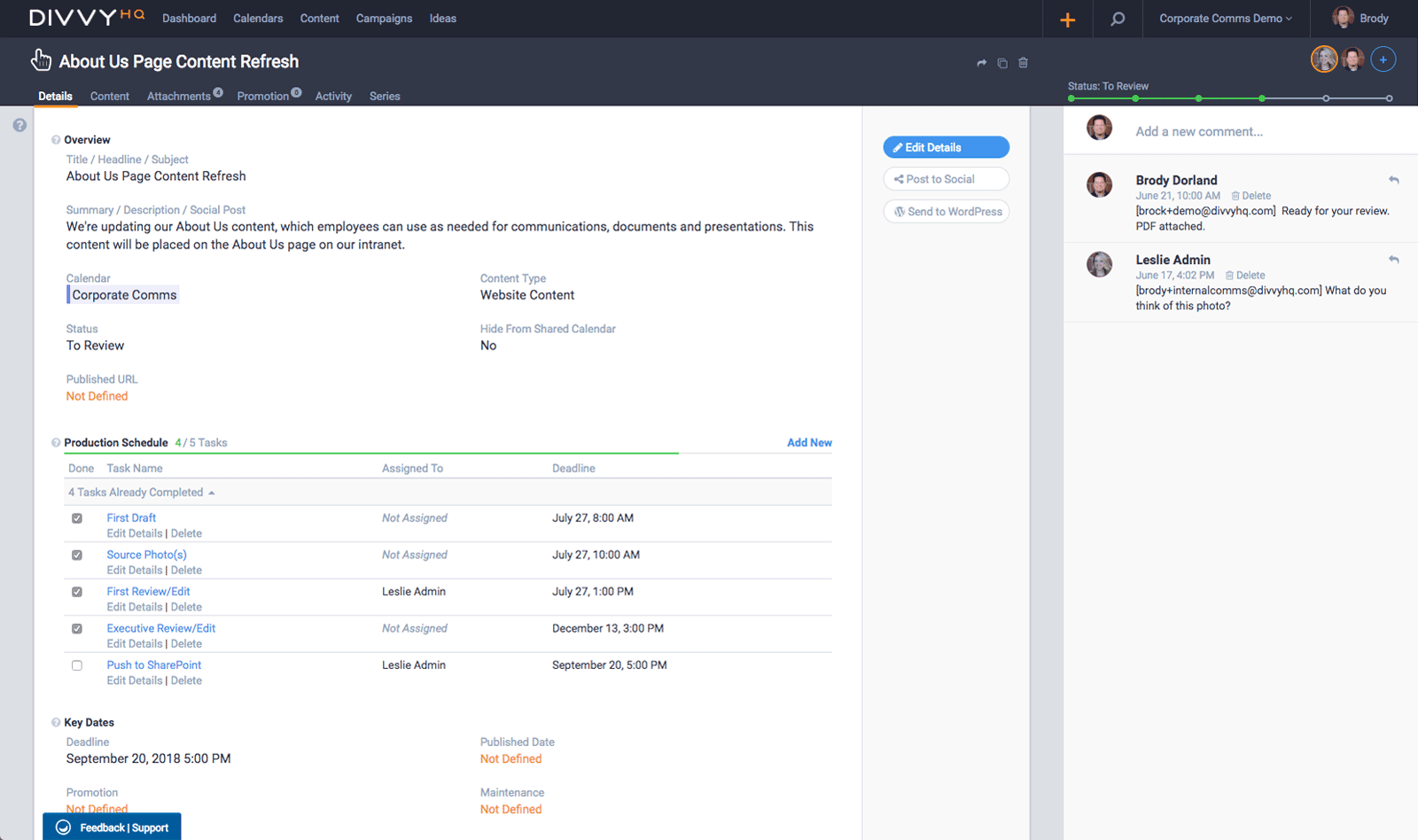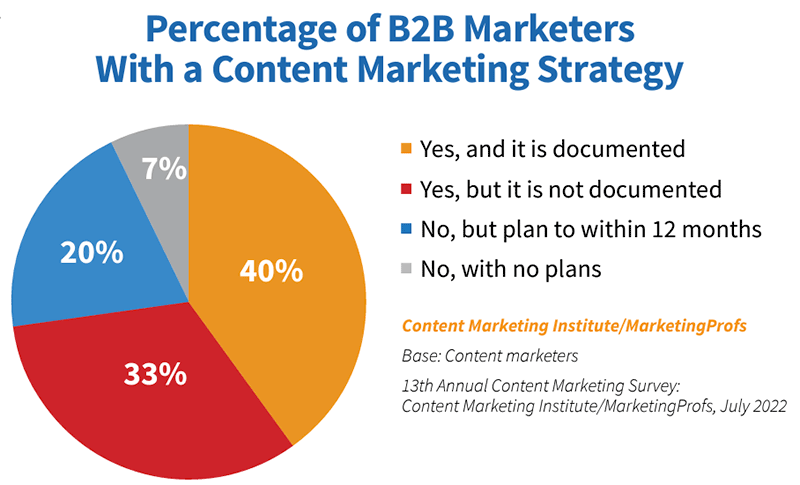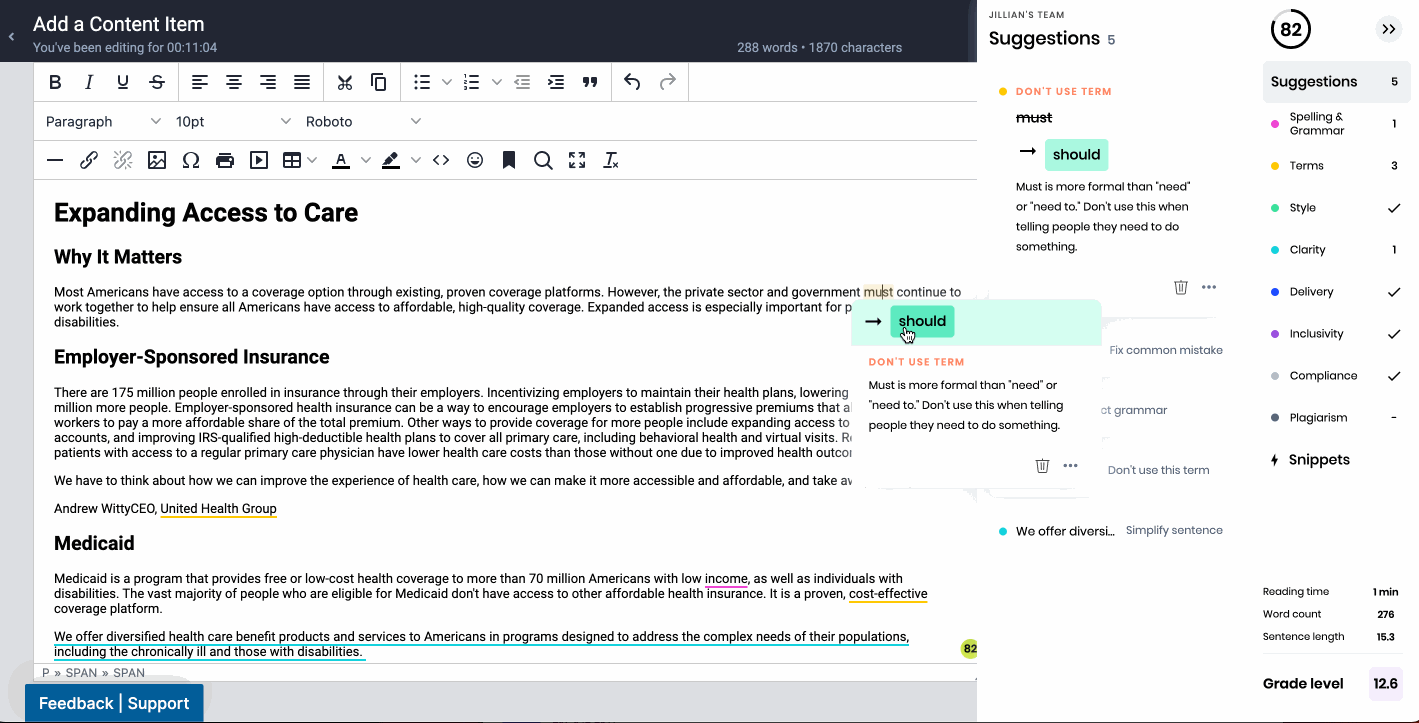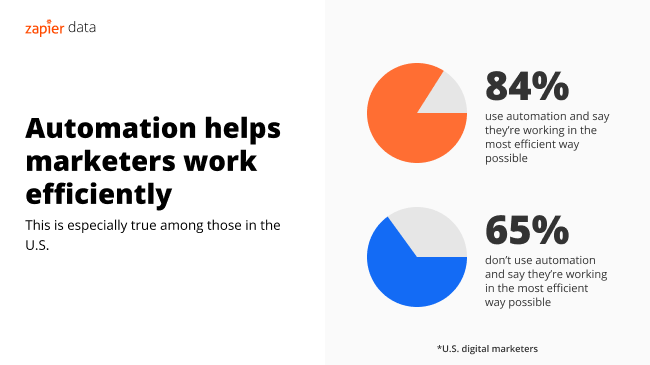Content marketing drives results. However, the competition for your audience’s attention is fierce, with 57% of content marketers indicating their industry is either very competitive or hyper-competitive.
Without a focused and organized team, you likely won’t get the results you desire. Your team will struggle to get assets out on time, let alone produce the engaging and relevant content your audience craves.
Streamlined and efficient content project management is a necessity. Let’s dive into the details to give you a handle on what it is, why you need it, and how it’s done.
Key Takeaways:
- Project management for content marketing establishes a structure and a process for content operations.
- Content marketing project management helps teams meet content strategy goals and provide audiences with the killer content they expect.
- Creating a template for the project management process provides consistency and improves efficiency.
- A project management framework for content teams requires a solid foundation, with a clear understanding of goals, a documented content strategy, and defined team member roles and responsibilities.
- Defining the steps, tasks, tools, and technology teams need to be successful is essential.
- Workflows and automation increase accuracy and efficiency.
- Communication, consistency in following the process, and revision of the process as needed are necessary measures when implementing project management strategies.
In This Article:
Getting a Handle on Content Project Management
Large content marketing and comms teams generate mountains of content with simultaneous and overlapping projects and campaigns. Requests for new items come in, deadlines loom, and the C-suite expects positive outcomes. Team members put their brains, eyes, and fingers on numerous assets on any given day.
The Content Marketing Challenge
Despite high demands and content volume, your team must ensure it provides audience segments at each customer journey stage with information and stories that address pain points, answer questions, pique interests, and entertain. Oh, and they need to do this consistently, predictably, and on every channel your audiences use.
It’s no wonder chaos often reigns supreme in the content marketing world. Without an organized structure, established expectations, and oversight, even moderate-sized teams can lose sight of the process and drop the ball mid-court during an intense, high-stakes playoff game.
The Role of Project Management in Content Marketing

DivvyHQ Screenshot: Content Project Example
Content project management provides the playbook, coaching, and team management needed to maintain focus and jump-start forward movement. It ensures that all players work together to craft and produce winning assets that your audience will cheer for each time new content reaches their eyes and ears.
It employs the same kinds of strategies and principles as project management in any industry. However, you need to tailor it to address inbound marketing’s unique processes, numerous content formats, and the diverse talent needed for successful content marketing.
The Role of the Content Project Manager
You need a dedicated content project manager, especially for teams within large and enterprise businesses, to handle content project management responsibilities. The manager coordinates all the moving parts to keep the machine running smoothly and efficiently.
Project managers in content marketing maintain a big-picture view — including content strategies, long-term goals, and future content and scheduling needs — while overseeing the day-to-day processes and details. The manager also usually provides final approval before publishing an asset.
Imagine a football team’s quarterback, or even the right fielder on a baseball team, trying to manage and coach the team while also playing the game. It doesn’t work. It also won’t do to put one of your creatives in charge of managing content teams and operations.
Creating a Content Project Management Framework
If your team has struggled to stay on top of the content marketing game, it’s time to roll out a roadmap for managing content operations. A project manager will have a much easier time coordinating multiple projects and team members if a system is in place.
You can use the following framework as a template that your project manager can follow when setting up new projects.
Create a Solid Foundation
Successful content marketing requires a solid foundation for your team to build upon. You need a clear understanding of your company’s goals and of content marketing’s role in achieving them.
If you don’t have a documented content strategy, it’s time to create one. A primary function of content project management is to ensure content fulfills strategy goals.

Source: Content Marketing Institute
Another critical foundation element is the team responsible for the content production process. We recommend identifying team roles and responsibilities, carefully considering the following:
- Staffing requirements for each content type and your current output levels
- Each person’s strengths
- Which role team members are most suited for based on their strengths
- Specific responsibilities for each role, with defined expectations
- Whether you have enough staff to fulfill your current needs
With your goals, strategy, and teams in place, you can move on to establishing processes.
Define Your Processes
Defining your content production processes is essential for effective content project management. Not all content formats will have the same process, so you’ll need to establish a process for each type, including:
- Individual steps, such as researching, writing, editing, revising, formatting, and creating graphics
- The order in which your team will perform each step
- Tasks involved in each step of the process
- Task timelines
- The approval and publishing process
- Monitoring and performance analysis scheduling
An established process is much more predictable and efficient than flying by the seat of your pants.
Identify Essential Tools and Technology
Beyond allocating the right team members for each job, what tools and technology do you need to support your content operations? You’ll want to ensure that your team has what they need to complete their jobs quickly without sacrificing quality. Be sure to include these essentials:
- Communication and collaboration tools: Everyone involved in a project should have a way to communicate and collaborate effectively. Emails and texts don’t cut it. We simplify communication with commenting features, both in-app and email notifications, and messaging via popular apps like Slack and MS Teams.
- Planning and scheduling tools: Managers and team members need a multi-functional planning and scheduling tool. A dynamic content calendar with customizable filtering and viewing capabilities is a must for content project management.
- Style guides: Creating a style guide for each asset type establishes editorial, voice, formatting, and messaging guidelines and requirements. It ensures your creatives produce consistently awesome content.
- Writing and editing technology: Writing and editing technologies improve writing quality and how quickly an asset is ready for publication. Divvy’s editing interface allows you to incorporate technology such as Grammarly, Jasper, and Writer, providing generative AI and editing suggestions to help your creatives rock their content.

Build Out Your Workflows
Workflows formalize the content creation process, providing your team with a chain of production, task responsibilities, and timelines. They are also a lifesaver for project managers, streamlining content project management tasks to simplify coordination and oversight. They help eliminate content chaos for everyone.
We provide plenty of workflow tools, so you can create any workflow you need. Our workflow builder template makes it even easier to establish custom processes for all content formats and channels.
Determine Automation Opportunities
Content production and content project management involve numerous tasks, some of which are admittedly mundane and simple. Determine which tasks you can turn over to AI to handle.
Automation frees up your team and managers to focus on the more complex and creative elements of content operations. You can automate aspects of content creation, notifications and reminders, workflows, and content performance reports.
Source: Zapier
Communicate With Your Team
After establishing a project management process, let your team in on what it is, and train them on new procedures and tools. Of course, once the process is in place and your staff adapts to it, only new team members will need this kind of communication and training.
Implementing a Content Project Management Process
When everyone is on the same page about your new project management process, it’s time to implement it. Here are a few tips to make the process go smoothly.
Communicate, Communicate, Communicate
Communication between the project manager and team members, and among team members, is essential to successful content marketing. Set expectations for communication from your team, and establish an open channel between the manager and team members. Though automated notifications are helpful and essential, the manager shouldn’t wait until deadlines have passed to touch base.
Follow the Process
It does no good to create a process if you don’t follow it. Content production habits can be hard to break, but your content marketing success depends on breaking them.
Provide training, reminders, and support for team members as they adapt to a new way of doing content operations. Letting go of the content project management process will only create more stress in the end, and could impact output cadence and quality.
Expect the Unexpected
No matter how good the team and project manager are, things don’t always go as planned. Expect the unexpected, and determine how to handle missteps, mistakes, and obstacles. Unexpected snags are seldom insurmountable, but preparing for them makes it easier for the team to get back on track.
Welcome Feedback and Suggestions
Your project management process might seem great on paper, but the content team members who live it in the day-to-day may have ideas about how to make it better. An effective content project manager makes the time and knows how to listen to the team’s feedback and suggestions about their tasks.
Iron Out the Kinks
As the team completes more content projects using the process, you and the team will likely discover where you need to make some changes to iron out the kinks and improve the process. Even if everything seems to be running smoothly, revisit your structure and system regularly to assess where you might be able to make improvements.
Using DivvyHQ To Simplify Content Project Management
Content project management helps you streamline and organize content operations. With Divvy, we help you take it to the next level. Our platform pulls all the necessary tools into one user-friendly central hub, simplifying your content marketing tasks. Request a demo today to see how we can help you eliminate the content chaos.
FAQs
What Is Content Project Management?
Content project management is a niche within project management. It applies many of the same principles and strategies adapted to content marketing processes. Project management for content marketing includes all content operations elements and processes, as well as managing the people and workflows required to move assets and campaigns from start to finish.
What Does a Content Project Manager Do?
A content project manager is the person who oversees content operations, from content strategy development to publication. Project managers in the content marketing industry don’t engage in the content creation process. Still, they are ultimately responsible for ensuring that high-quality, engaging, and relevant content reaches audience members on time while adhering to content strategy and company goals.
What Are Content Management Strategies?
Content management strategies provide structure for the content production process. Your content management strategy should include:
- Staff roles and responsibilities
- Workflow processes for each content format
- Content creation, editing, approval, and publishing processes
- Content analysis and audit guidelines
- Storage and archiving procedures
Essentially, content management involves allocating time, talent, and tools for implementing your content strategy and governing the process.
What Are the 5 Stages of Content Marketing?
The five stages of content marketing are: 1) research and planning; 2) scheduling and content creation; 3) publishing and distribution; 4) promotion; and 5) analysis and revision. Efficient content project management ensures a seamless marketing process and improves content performance across channels.

